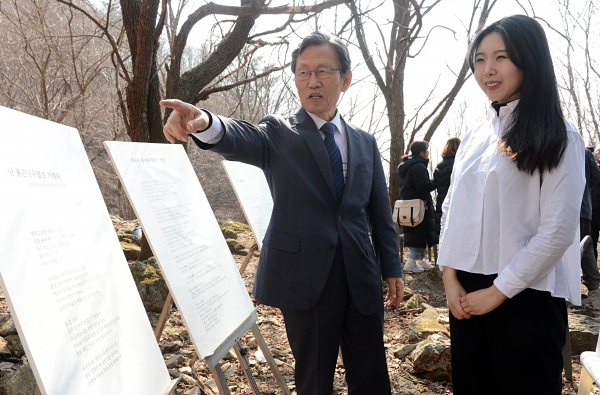Looking back on my life's journey, I've never carried the heavy burden of regret. This isn't because I'm perfect, but rather due to my unique ability to embrace life's twists and turns with a positive mindset. From a young age, when faced with failure or frustration, I tended to quickly accept it and seek new paths instead of dwelling on it for long.
For instance, when I was rejected from a school I applied to, I didn't wallow in disappointment. Instead, I reassured myself, "If not this path, there must be another." This wasn't about avoiding failure, but rather viewing it as a signal for new opportunities.
Of course, this attitude wasn't always easy to maintain. Sometimes, the bitter taste of failure lingered, and there were nights I spent crying and worrying. But come morning, I always rose with renewed spirit. This wasn't because I was special, but because experience had taught me that this approach made my life richer.
Regret is like a chain that binds us to the past. While we can't eliminate it entirely, we can learn not to be shackled by it. When confronting failures or mistakes, it's crucial to use them as lessons to move forward. In doing so, we can savor the joy of growth instead of regret.
Reflecting on my life, I believe that all the challenges, big and small, have shaped who I am today. A life without regret isn't one without mistakes, but one where we learn and grow from those mistakes. In this sense, I take pride in saying my life has been a rich journey without regrets.
This life attitude significantly influenced my academic journey and path as a theologian. When presenting new theories or challenging existing notions, I didn't fear failure. Instead, I saw it as an opportunity to learn. This approach added depth to my research and broadened my perspective.
Moreover, this mindset proved invaluable in my life as a pastor. In leading a church community, I strived to positively embrace various challenges and grow through them. This led not only to personal growth but also to the development of the entire church community.
Ultimately, living without regrets isn't about living a perfect life, but about learning and growing through every experience. I've lived with this attitude and will continue to do so. This, to me, is the true meaning of a rich and fulfilling life.
For instance, when I was rejected from a school I applied to, I didn't wallow in disappointment. Instead, I reassured myself, "If not this path, there must be another." This wasn't about avoiding failure, but rather viewing it as a signal for new opportunities.
Of course, this attitude wasn't always easy to maintain. Sometimes, the bitter taste of failure lingered, and there were nights I spent crying and worrying. But come morning, I always rose with renewed spirit. This wasn't because I was special, but because experience had taught me that this approach made my life richer.
Regret is like a chain that binds us to the past. While we can't eliminate it entirely, we can learn not to be shackled by it. When confronting failures or mistakes, it's crucial to use them as lessons to move forward. In doing so, we can savor the joy of growth instead of regret.
Reflecting on my life, I believe that all the challenges, big and small, have shaped who I am today. A life without regret isn't one without mistakes, but one where we learn and grow from those mistakes. In this sense, I take pride in saying my life has been a rich journey without regrets.
This life attitude significantly influenced my academic journey and path as a theologian. When presenting new theories or challenging existing notions, I didn't fear failure. Instead, I saw it as an opportunity to learn. This approach added depth to my research and broadened my perspective.
Moreover, this mindset proved invaluable in my life as a pastor. In leading a church community, I strived to positively embrace various challenges and grow through them. This led not only to personal growth but also to the development of the entire church community.
Ultimately, living without regrets isn't about living a perfect life, but about learning and growing through every experience. I've lived with this attitude and will continue to do so. This, to me, is the true meaning of a rich and fulfilling life.

